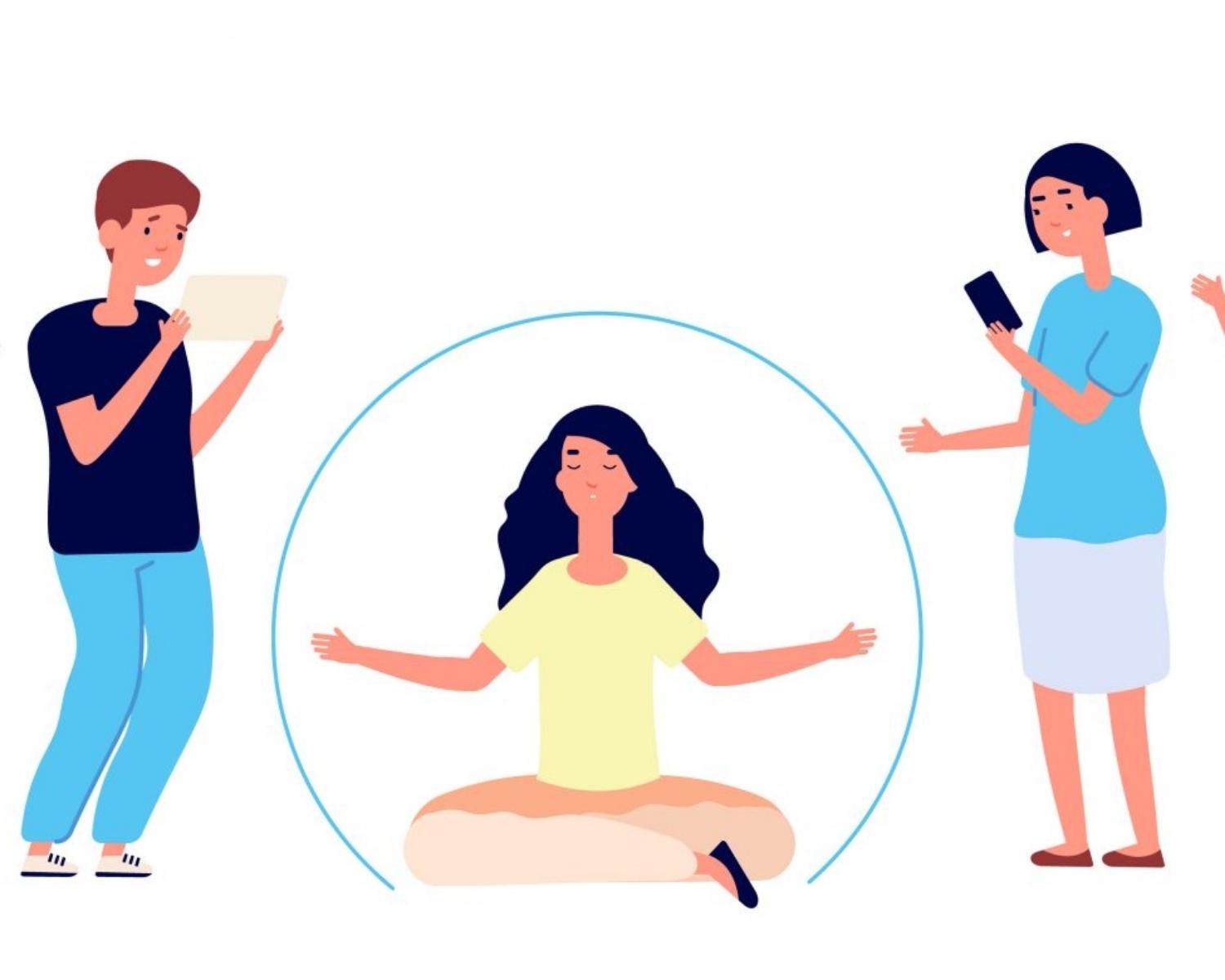Set Better, Healthier Boundaries to Improve Your Life
Curated from: psychologytoday.com
Ideas, facts & insights covering these topics:
12 ideas
·3.85K reads
44
Explore the World's Best Ideas
Join today and uncover 100+ curated journeys from 50+ topics. Unlock access to our mobile app with extensive features.
What Are Boundaries
“A boundary is a limit or space between you and the other person; a clear place where you begin and the other person ends . . . The purpose of setting a healthy boundary is, of course, to protect and take good care of you” (n.d.).-- IPFW/Parkview Student Assistance Program
Basically it establishes what and up to what extent you're willing to accept from other people, and what other people can expect from you.
Why is it important?
- Boundaries are a crucial component of self-care
- They are essential for maintaining healthy relationships with others.
- A lack of boundaries invites a lack of respect.
130
558 reads
Are Your Boundaries Rigid, Loose Or Healthy?
Boundaries can take many forms ranging from being rigid and strict to almost nonexistent.
People with more rigid boundaries, can come off as detached. Their boundaries can be seen as a way to avoid close relationships and keep others at a distance
Those with more loose boundaries, can be seen as being too involved with others’ problems. They tend to overshare personal information. Because they seek to please others for fear of rejection they find it difficult to say “no” and are often seen as pushovers
119
478 reads
A Person With Healthy Boundaries
- Unlike the other 2, people with healthy boundaries can share some personal information to give a sense of familiarity but they know to limit it to whats appropriate.
- They understand their personal needs and wants and know how to communicate them.
- With defined individuality they are clear on what they will and will not hold themselves responsible for.
- Though they value their own opinion but they also know how to take 'no' for an answer.
For many of us our boundaries take on different forms depending on the situation. Your boundaries at work might be rigid but almost non-existent at home.
125
426 reads
The Different Types Of Boundaries And What They Look Like
A. Physical: Your personal space, privacy, and body. “Don’t get so close to me.” “Don’t enter my room without asking.”
B. Sexual. Your expectations concerning intimacy. “We need to use contraception if we’re going to start sleeping together.”
C. Intellectual: Boundaries concerning your thoughts and beliefs. When someone dismisses another person’s ideas and opinions, you can say that his intellectual boundaries are not respected. "It's ok to disagree"
D. Emotional: Your boundaries concerning your feelings. "I'm not comfortable talking about our family business"
126
448 reads
The Different Types Of Boundaries ..continued
E. Financial: Your guidelines for lending, giving or donating money. "I can have dinner with you, but let's go Dutch." "Don't use my credit card to buy your makeup."
F. Time: When and how much time you can spare. “I can only stay for an hour.” “Do you have time to help me figure this out?”
G. Ethical: Your ethical guidelines that ought to govern your relationships “I just can’t lie for you. I’m sorry.”
H. Spiritual: Defines your beliefs and your place in the scheme of things “I’m not okay with you insulting my faith just because you don’t share my beliefs.”
121
334 reads
Benefits Of Having Healthy Boundaries
1. You develop empathy and compassion for others and recognize their limitations.
2. You feel less resentment towards people when your requests arent met because you understand that just like you they have boundaries too.
3. You gain a sense of inner peace and you feel empowered when are able to resist the pressures from people who keep wanting more than what you can give.
4. You have ample time and energy for self care and to attend to the things that matter most to YOU, not to others.
5. By not setting your own needs aside to cater to the needs of others first, you gain a sense of self-respect.
125
277 reads
Benefits Of Having Healthy Boundaries
6. Boundaries can inspire improved communication. Your setting of ground rules and showing others where you stand—can inspire them to do the same.
7. As you build healthier boundaries, your self-esteem goes up as well. You will see that your value is not dependent on how useful you are to others.
8. And because of this, you can make decisions for yourself, based on what you think is best for you
8. Clearer boundaries that reflect who you are as a person and what you value can mean less room for misunderstandings and can result to others having a better understanding and greater acceptance of you.
119
204 reads
Benefits Of Having Healthy Boundaries
9. Career-wise healthy boundaries can help you avoid burnout and enables you to stay in the profession longer. A more fulfilling professional life means more time and attention for your personal life.
10. Having clear boundaries means less stress, less financial burdens, less wasted time, and less relationship issues
11. Healthy boundaries can reduce the risk of health problems like mental distress, stomach ulcers and so on.
118
240 reads
How To Set And Maintain Healthy Boundaries
1. Self-reflection: Take time to understand why a certain something (personal space, time alone, get-togethers with friends) is important to you and how you will benefit from it.
2. If you don’t have many boundaries in place yet, build your additions slowly. Introducing them all at once might overwhelm you and those around you. Doing so also gives you time to assess whether it’s heading in the right direction or if it needs some tweaking.
3. Set them early
By setting boundaries and expectations from the very beginning, everyone knows where they stand from the get go-conficts can be avoided.
121
255 reads
How To Set And Maintain Healthy Boundaries
Be consistent and steady
This helps to reinforce your original thresholds and beliefs, and ensures those lines remain clearly established.
Loosening those boundaries from time to time can lead to confusion for you and for those around you.
Feel free to add extras
In some aspects of our lives, there are boundaries already in place — such as in the workplace. Consider these the minimum. It’s okay to add your own.
Austrian researchersTrusted Source found that employees who introduced personal workplace boundaries felt more empowered
116
190 reads
How To Set And Maintain Healthy Boundaries
Communication is key to maintaining healthy boundaries especially if someone consistently oversteps your boundaries.
“Say ‘no’ simply but firmly to something you do not want to do. Do not feel that you need to explain” (Kairns, 1992). Not overexplaining is a crucial aspect of setting boundaries. This will prevent a would-be interloper from finding a loophole where they can wiggle their way in. This says that you and only you have the right to determine what you do and do not want to do and they have to be ok with that.
116
219 reads
How To Set And Maintain Healthy Boundaries
Keep the focus on yourself.
Instead of saying “You have to stop bothering me after work”, say it like “I need some time to myself when I get back from work.”
Set consequences
There are times in which “It is impossible to set boundaries withou consequences” (IPFW/Parkview Student Assistance Program, n.d.) State explicitly why these boundaries are important or what will happen if they are violated.
"You need to stop using me like a tool or we dont have to see each other again."
Declare only consequences that you're willing to follow through on, or else the boundaries will not be effective.
118
228 reads
IDEAS CURATED BY
Jack of all people-related trades, master of none. Majored in Psychology, Customer Service Assoc for a few Years, HR Officer for 4, Manager and ESL Teacher for over 11 yrs now, an artist since birth.
CURATOR'S NOTE
Blurred boundaries at home and at work are associated with unhealthy lifestyle,unhappiness, which may lead to conflicts and eventually family breakdown.
“
Wil Powers's ideas are part of this journey:
Learn more about psychology with this collection
Strategies for promoting inclusivity
How to address unconscious bias
How to create a diverse and inclusive workplace
Related collections
Similar ideas
6 ideas
6 Steps To Set Good Boundaries
mindbodygreen.com
9 ideas
10 ideas
10 Way to Build and Preserve Better Boundaries
psychcentral.com
Read & Learn
20x Faster
without
deepstash
with
deepstash
with
deepstash
Personalized microlearning
—
100+ Learning Journeys
—
Access to 200,000+ ideas
—
Access to the mobile app
—
Unlimited idea saving
—
—
Unlimited history
—
—
Unlimited listening to ideas
—
—
Downloading & offline access
—
—
Supercharge your mind with one idea per day
Enter your email and spend 1 minute every day to learn something new.
I agree to receive email updates







